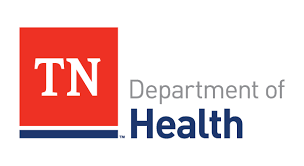
By Juanita White, Community Building Manager
Binghampton Development Corporation
I have the honor of belonging to a special group of women of all ages who get together at various times throughout the year. We make up reasons to get together but we really do it because we grew to enjoy each other’s company over the year. We like to get together and do “women things” and talk “women talk.”
One of the women revealed to us about three years ago that she had a miscarriage. She told us months after the incident so that we wouldn’t make a big deal out of it. That would make her sad, she told us, and we respected that. She lost the baby early in her pregnancy but as any woman who has ever been pregnant knows, loss hurts and loss of a baby, your own flesh and blood, hurts worse than anything. So we understood that she and her husband wanted to bear that pain in private, away from questioning, though caring, friends.
We had a luncheon together in late 2014 to celebrate the 50th birthday of one of the women in the group. We were all in high spirits, having a grand old time. Our friend, “Gloria” I’ll call her though that is not her name, joined us. Gloria celebrated with us but she was not her usual self. Oh yes, she laughed at the over-the-hill jokes and the gag gifts but those big, light brown doe eyes seemed a little sad to some of us. Nobody pried; we respect each other’s privacy. We sensed that something was wrong but assumed she was still grieving the loss and maybe getting pregnant was difficult. We didn’t know. We didn’t ask.
One day Gloria’s sister, a friend of mine, told me that Gloria did indeed get pregnant again but lost that child too. I was heartbroken; I know how much she wants to be a mother. Her sisters have children and she, being the youngest, wanted to start a family too. Gloria is young – 32 – so she was in her late 20’s when her body started betraying her, giving her false hopes of motherhood, only to snatch her dreams away.
There was some reason to be hopeful, her sister told me. Gloria and her gynecologist worked together to determine the root cause of the problem. Gloria has a small medical issue that would not keep her from carrying a child to term but they needed to find the right medical interventions to help her carry the baby to term. The doctor did some research, found another doctor to collaborate with her on Gloria’s particular issue, and decided upon a plan. Gloria was generally healthy-she ate right, drank a little, not too much, exercised a bit. (Hey, who can hit the gym five days a week? Well, great for you but….) Anyway, together the three formed a team and determined to see Gloria become a mother one day.
Long story short: Gloria and her husband became parents of a 7 lb. healthy baby boy in early 2016. We hosted the “bluest” baby shower in Memphis and named ourselves “The Godmothers.”
The story here is that healthy women have healthy babies. Doctors who work with their patients can help women prepare for a healthy full term birth. Good health care is important. Birth spacing matters. Being stress-free is a MUST. Having supportive family and friends means everything. In the end “A Healthy Pregnancy= A Healthy Baby.”



